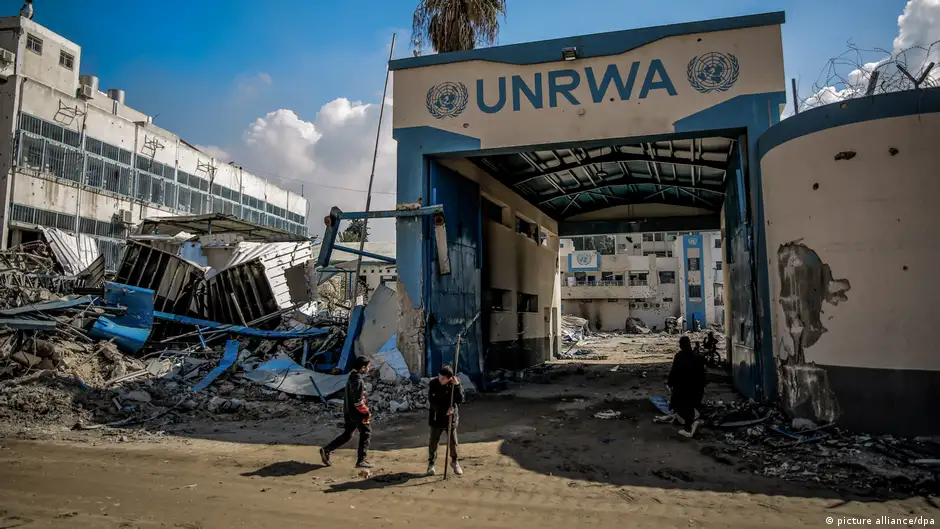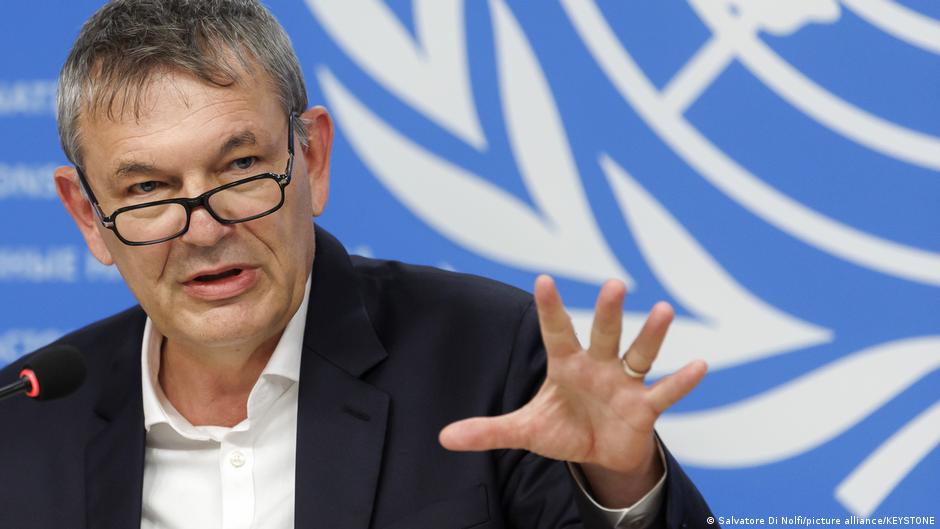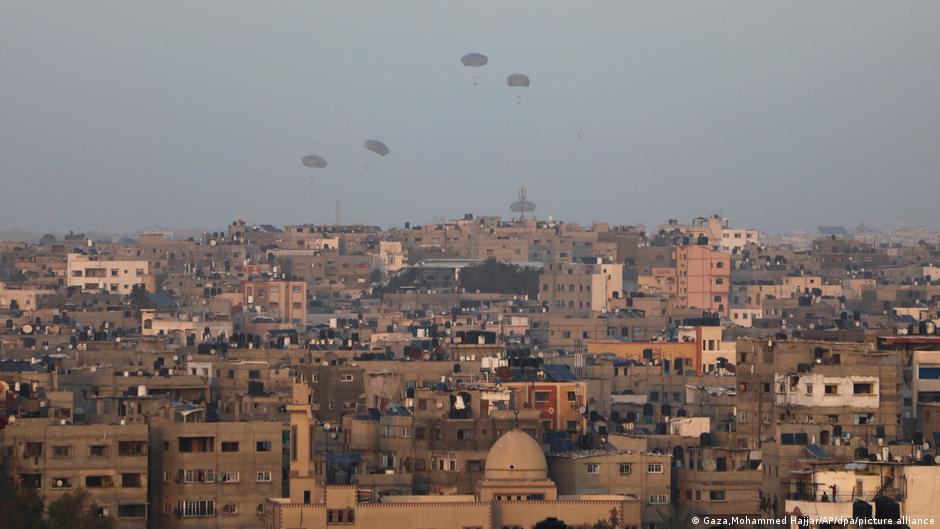EU releases frozen funds for Palestinians

The EU Commission had suspended its payments to the United Nations Palestinian Relief and Works Agency (UNRWA) for a month following allegations by the Israeli government that twelve UNRWA employees had collaborated with the radical Islamist organisation Hamas. Hamas, which is also classified as a terrorist organisation by the EU, attacked Israel on 7 October, killing around 1,200 people and taking around 250 hostage. The terrorist attack triggered a large-scale military operation by Israel in the Gaza Strip, in which more than 30,000 civilians are now believed to have died. Despite ongoing third-party intervention, both sides have yet to agree the terms of a ceasefire.
50 million euros approved
Payments from the European Union to the Palestinian relief organisation UNRWA are due to resume this coming week. 50 million euros are to be transferred, with a further 32 million euros to follow in two instalments later in the year. Following lengthy negotiations, UNRWA agreed to the EU's conditions for resuming funding. An investigation into the allegations will be carried out by the United Nations' internal audit department. The EU will also carry out an investigation with its own experts.
In an exchange of letters with the EU Commission, UNRWA head Philippe Lazzarini pledged that his UN organisation was not involved in the terrorist crimes committed by Hamas and that all 13,000 employees working in the Gaza Strip to date would be subject to a further review. An international team of experts is preparing recommendations for UNRWA to prevent any potential collaboration with Hamas.

At a meeting with the EU foreign ministers on 12 February, Lazzarini argued that Israel had not provided any evidence of involvement by its employees in acts of terrorism. The foreign ministers conceded at the time that UNRWA was indispensable for providing at least makeshift supplies to the population in the Gaza Strip in the current war situation. According to a UN spokesperson, the United Nations is also still waiting for documentation and intelligence documents from Israel.
EU increases humanitarian aid
The EU Commission also announced that it will increase its humanitarian aid to the Gaza Strip by 68 million euros. This new funding is to be used primarily by international aid organisations such as the Red Cross and the Red Crescent and is in addition to the 82 million euros already planned for the UNRWA this year. The total amount of humanitarian aid for the Palestinians, which can be used by UNRWA or international organisations, will also receive further supplements, bringing the figure to a maximum €275 million.
President of the EU Commission Ursula von der Leyen justified the increase in aid: "We stand with the Palestinian people in Gaza and elsewhere in the region. Innocent Palestinians should not have to pay the price for the crimes of the terrorist group Hamas. They are facing terrible life-threatening conditions due to insufficient access to food and basic supplies."
The EU Commission is the United Nations Relief and Works Agency's third largest donor. The crucial question for UNRWA now is how the largest and second-largest donors will position themselves. The USA and Germany also suspended their payments in January. If the USA and Germany do not pay as planned, UNRWA will face serious payment difficulties at the end of the month.
Around 40% of UNRWA's budget is spent on Gaza’s nearly 2 million residents. The rest is spent in other countries with significant Palestinian populations: Lebanon, Jordan, Syria, as well as in the occupied West Bank.
"UNRWA's collapse would be dangerous for local stability in each location," Joost Hiltermann, head of the Middle East and North Africa programme at the International Crisis Group confirms. "But if it links up with an ongoing war in Gaza, or even the mass expulsion of Palestinians from Gaza into Egypt, which would prompt an escalation of attacks by Israel's enemies in the region, then all bets are off."
EU lacks a uniform stance on Gaza
Attitudes towards the situation in the Gaza Strip among the 27 EU member states are far from unanimous. Germany wishes to see humanitarian supplies for the people in Gaza guaranteed, but is reluctant to criticise Israel. The military operation against the terrorist organisation Hamas is both justified and necessary, according to Berlin.
Last Thursday, German Foreign Minister Annalena Baerbock announced another increase in humanitarian aid. Like the United Nations, she is also calling for a "humanitarian ceasefire" to improve the supply situation. Then hostages could be released and further deaths among the civilian population avoided, Baerbock wrote on X.

Other EU members, such as Spain and Ireland, have criticised Israel's actions, writing to the EU Commission to temporarily suspend the European Union's partnership agreement with Israel. This request is currently being examined by the Commission, said EU Commission spokesperson Eric Mamer in Brussels.
The EU Commission declined to state its position on the numerous victims who died when an aid convoy arrived in the Gaza Strip on Thursday. EU Commission President von der Leyen called for an independent international investigation into the incident.
"We cannot assess what happened. We are not apportioning blame. First we have to find out what happened," said her spokesperson.
Hamas has accused Israel of firing into the crowd. Israel blames the deaths on a stampede during the unloading or possible looting of lorries carrying aid supplies.
© Deutsche Welle 2024
